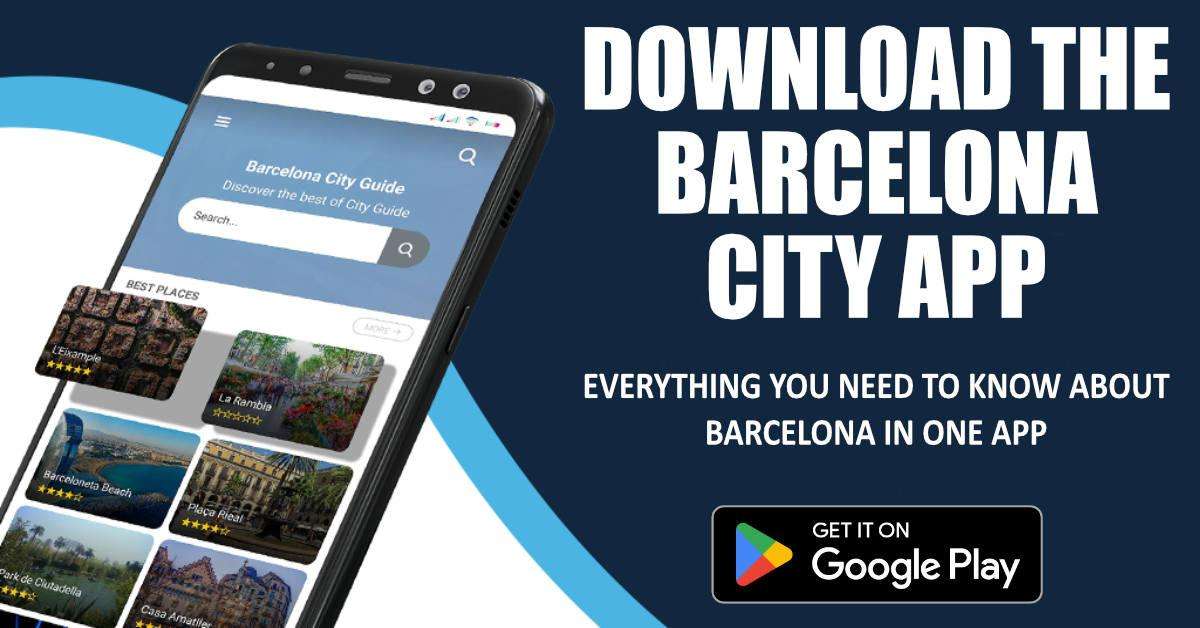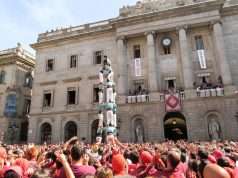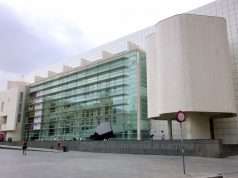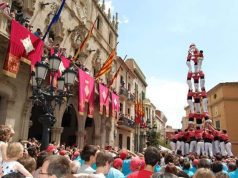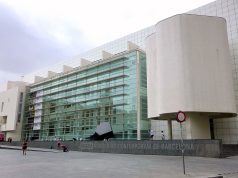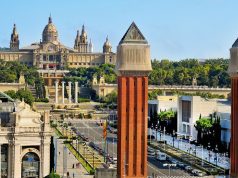If you can work remotely, Spain has introduced the nomad visa. This means you can apply to work in Spain if you acquire the nomad visa. We explain how to get your nomad visa for remote working in Spain.
Barcelona is one of the most popular destinations for remote workers in Europe. The city offers a vibrant culture, a pleasant climate, a high quality of life, and a thriving tech and innovation ecosystem. Whether you are a freelancer, an employee, or an entrepreneur, you can find plenty of opportunities and benefits to work remotely in Barcelona. This guide explores the pro’s and con’s of remote working in Barcelona, and how to apply and get the nomad visa.
Many people dream about working in a warm climate, catching up on emails and preparing projects for clients. Many think about opening the laptop in a café, in a picturesque square or beside the beach. The good news is all this is now possible with Spain’s nomad visa. However, there are some important requirements before you can get your nomad visa. We will take a look at the requirements for a nomad visa in Spain and offer advice on the best ways to proceed with your application. Some of the questions you most probably have are the legal requirements, the best places to work and live, and the challenges and tips to overcome them? In this article, we will answer these questions and more.
The Nomad Visa in Spain, Your Visa for Remote Work
One of the main challenges for remote workers who want to stay in Barcelona (or Spain) for more than 90 days is getting a valid visa. Fortunately, Spain has recently introduced a new type of visa specifically designed for digital nomads: the nomad visa.
The nomad visa allows remote workers to stay in Spain for up to one year, with the possibility of renewal. To apply for this visa, you need to meet the following requirements:
- You must have a contract or an offer letter from a company or organization outside Spain, or be self-employed and provide proof of your activity and income.
- You will need to have a monthly income of at least €2,130 (or €25,560 per year). Also an additional €532 for each dependent family member.
- You need health insurance that covers you and your family members in Spain.
- You must not have a criminal record or be banned from entering Spain or any other Schengen country.
- There is a visa fee of €80 (or €40 for children under 6 years old).
You will be able to apply for the nomad visa at the Spanish consulate or embassy in your country of residence. You will need to fill out an application form and provide the following documents:
- A passport or travel document that is valid for at least one year and has at least two blank pages.
- A recent passport-sized photo.
- A copy of your contract or offer letter from your employer or client, or a certificate of your self-employed activity and income.
- A bank statement showing your monthly income for the last six months.
- A health insurance policy that covers you and your family members in Spain.
- A criminal record certificate from your country of residence or any other country where you have lived for more than six months in the last five years.
- A declaration that you will not carry out any work or professional activity in Spain.
The processing time for the nomad visa is usually between two and four weeks. Once you receive your visa, you can enter Spain and register with the local authorities within one month. You will then receive a foreigner identity card (TIE) that will allow you to stay and work remotely in Spain legally.

The Benefits of Working Remotely in Barcelona
Barcelona is a great city to work remotely for many reasons. The unique city vibe of Barcelona has made it a haven for digital nomads to live and work. Here are some of the benefits that you can enjoy as a remote worker in Barcelona:
- A rich and diverse culture: Barcelona is famous for its art, architecture, music, cuisine, festivals, and nightlife. You can explore the works of Gaudí, Picasso, Miró, and Dali. Also taste the delicious tapas, paella, and sangria; join the celebrations of La Mercè, Sant Jordi, and La Diada; and experience the vibrant atmosphere of Las Ramblas, El Born, and Gràcia.
- A mild and sunny climate: Barcelona has a Mediterranean climate that is characterized by warm summers and mild winters. The average temperature is around 20°C (68°F) throughout the year, and the city enjoys more than 300 days of sunshine per year. Take advantage of the weather to relax on the beach, hike in the mountains, or bike along the coast.
- A high quality of life: Barcelona ranks among the top cities in the world for quality of life. The city offers excellent public services, such as health care, education, transportation, and security. It also has a low cost of living compared to other European capitals. There is plenty of affordable accommodation, food is reasonable, great night entertainment, and modern utilities in Barcelona.
- A thriving tech and innovation ecosystem: Barcelona is one of the leading tech hubs in Europe and hosts many events, conferences, meetups, and coworking spaces for tech professionals. You will be able to network with other remote workers, entrepreneurs, investors, and mentors; learn new skills and trends; and find new opportunities and goals.
The Best Places to Work and Live in Barcelona
Barcelona has many neighborhoods that offer different vibes, amenities, and prices. Depending on your preferences and budget, you can choose the best area to work and live in Barcelona. Here are some of the most popular options for remote workers:
- Eixample: This is the central and modern district of Barcelona. This district is where you can find many elegant buildings, shops, restaurants, and bars. Eixample is well-connected by public transport and has many coworking spaces and cafes where you can work comfortably. The downside is that it can be noisy, crowded, and expensive.
- Gràcia: A charming and bohemian neighborhood, where you can enjoy a more local and authentic atmosphere. Gràcia has many plazas, markets, cinemas, and theaters where you can socialize and have fun. It also has some coworking spaces and quiet cafes where you can work productively. The downside is that it can be hard to find parking and it is not very close to the beach.
- Poblenou: An emerging and trendy neighborhood, where you can find many startups, creative agencies, and innovation hubs. Poblenou has a mix of old and new buildings, industrial and artistic spaces, and traditional and modern businesses. It also has a long beachfront where you can relax and enjoy the sun. The downside is that it can be far from the city center and some areas are still under development.
- Sant Antoni: This is a hip and lively neighborhood, where you can find many bars, restaurants. There are also many shops that cater to young and cosmopolitan people. Sant Antoni has a large market where you can buy fresh food and products. It also has some coworking spaces and cozy cafes where you can work efficiently. The downside is that it can be noisy at night and it is not very green.
The Challenges and Tips for Working in Barcelona
Working remotely in Barcelona with a nomad visa can be an amazing experience. You must also consider that it also comes with some challenges that you need to be aware of and overcome. Here are some of the common difficulties that remote workers face in Barcelona and some tips to deal with them:
- Language barrier: Although most people in Barcelona speak English, especially in the tech and tourism sectors, you may encounter some difficulties communicating with locals who only speak Catalan or Spanish. To avoid misunderstandings and frustrations, it is advisable to learn some basic phrases in these languages or use a translation app when needed. You can also take advantage of the many language exchange events and online platforms that are available in Barcelona to practice and improve your skills.
- Time zone difference: If you work remotely for a company or a client that is based in a different time zone than Barcelona, you may have to adjust your schedule accordingly. This can affect your productivity, your sleep quality, and your work-life balance. To cope with this challenge, it is important to set clear boundaries and expectations with your employer or client, communicate regularly and effectively, use tools that help you manage your time and tasks, and create a routine that suits your needs and preferences.
- Loneliness: Working remotely can sometimes make you feel isolated and disconnected from your colleagues, friends, and family. This can affect your mental health, your motivation, and your happiness. To prevent this from happening, it is essential to build a strong network of support and socialize with other remote workers and locals in Barcelona. You can join online communities, attend events, meetups, workshops, or join a coworking space where you can interact with like-minded people.
- Distractions: Working remotely in Barcelona can also expose you to many distractions that can interfere with your focus and concentration. You may be tempted to explore the city, the beach, or join the parties instead of working on your projects. To avoid this, it is crucial to set clear goals and priorities. Think about creating a dedicated workspace that minimizes interruptions, use tools that help you block distractions or track your progress.

Our Final Thoughts on Remote Working in Barcelona
Barcelona is a wonderful city to work remotely, however, it may not be for everyone. If you have a family or partner it may not the right time for remote working. However, for many people, there are gaps or moments in your life that remote working may be precisely what you need to do. Such examples are people who are single, seeking adventure or with a need to escape the norm. Certainly for those people seeking a change or adventure, remote working in Barcelona will fit the bill.
My final, and probably most important, piece of advice for applying for a nomad visa is to work with a specialist lawyer. If you decide to get a lawyer who specializes in work visas or nomad visas for Spain, you will have a better chance of approval. A qualified lawyer will check through your application for a nomad visa, and make sure that the process runs smoothly. If there are any problems with the nomad visa, a lawyer would be able to fix and re-submit your application.

